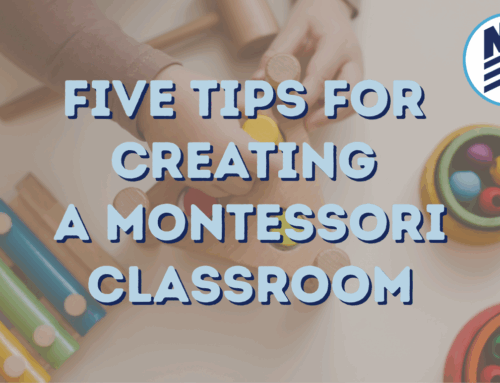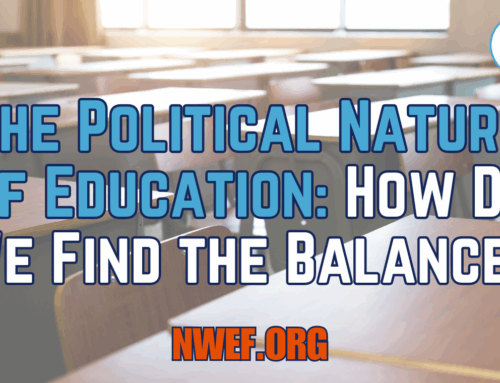
The Pros and Cons of Selecting a Magnet School for Your Student
American parents have an astounding array of choices regarding their children’s education.
Of course, most people are aware of public schools, private schools, homeschooling, etc. But how many are aware of the micro choices available? For instance, Montessori schools, microschools, charter schools, and magnet schools are merely a few of these extraordinary options.
Choosing the right school for your child is a big decision, with new factors to consider around every corner. Reading Rocket notes that a host of environmental factors can help you decide which school would best fit your child and your family. Moneygeek suggests using the “A-B-C” approach to this decision: Area, Budget, and Child.
However you decide to educate your kids, you want to have all the information possible before making this enormously important choice. They all have pros and cons; the trick is knowing them and making an informed decision.
So, let’s dig into Magnet Schools: What are they? What are their pros and cons?
We’re so glad you asked!
The What
What is a magnet school?
Magnet schools are publicly funded and so fall under the public education category. A considerable difference between the average public school and a magnet school is its funding limit. The Public School Review explains, “They [magnet schools] receive additional funding to enable them to spend more money on their students, supplies, teachers, and educational programs.”
The Review continues, noting that magnet schools have three additional defining features. Magnet schools…
- Offer a specialized curriculum or instruction style, focusing on a very specific area of interest. One magnet school might highlight music, drama, and languages, while another might emphasize science, technology, and math.
- Represent diversity of socioeconomics and race within the student body.
- Designed specifically to encourage this type of inclusion.
Due to their distinctive funding, magnet schools often develop specialized programs for students. Specialization is what magnet schools do best. Walden University notes,
“They utilize a hands-on, centralized approach to providing students with a robust learning experience in areas that capitalize on their strengths and interests. Children in magnet programs still learn the basic curricula that regular school programs provide, but those basics are enhanced by the special teaching techniques and more personalized settings of magnet schools.”
Magnet schools are open to the public, regardless of district. As a highly sought-after school choice option, they often face an overwhelming number of applicants. To address this problem, they institute specialized admission requirements or a lottery to limit admissions, such as is currently open through the magnet schools in the Springfield, Missouri area.
So, we’ve established what a magnet school is and some of its defining features, but what about the positives and negatives? We’ve got you! Here are just a few of the pros and cons of magnet schools so you can make an informed decision for your family!
Pros
Class Size
Every parent wants to know that their student is receiving the attention and instruction needed to succeed in their education. A big aspect of ensuring this happens is remaining aware of the teacher-to-student ratio. Vittana points this positive out.
“When you have a magnet or charter school available, then the smaller class size and fewer students in the school overall can facilitate individual learning process with greater regularity. There are more opportunities to ask questions, have the teacher work 1-on-1 with students when needed, and address concerns that could hinder the learning process.”
Interest-Based, Need-Based Learning
Magnet schools focus on cultivating the student’s love of learning. A big part of this is to let the student’s interests and passions lead their own education for a reasonable amount of time. Magnet schools generally have a specific focus, such as an emphasis on STEM courses.
The Public School Review notes that magnet schools
“allow students to focus on the subjects they find most interesting. Each magnet school has a particular curricular focus in addition to teaching general education subjects. Gifted students do particularly well in magnet schools because education is catered to their interests and to their ability to learn.”
Outstanding Academic Achievement
Magnet schools generally offer a higher standard of academic excellence. Piggy-backing on our previous point, magnet schools are a wonderful environment for gifted children because they maintain a specific focus. Magnet schools are dedicated to offering their students an outstanding education, and their funding and teacher/student ratio enable this on a wider scale.
“…[M]agnet schools receive additional funding to maintain their specialized programs. The added funding allows them to spend more on supplies, books, and resources, which aids them in maintaining their high standards and reputations,” Teach.com explains. “[T]hey tend to draw some of the more gifted students…. As a result, magnet schools have exceptionally high academic achievement, higher rates of attendance and graduation, and more active involvement on the parts of families and communities. Teachers at magnet schools are also highly specialized and may go through more training and professional development.”
Diversity
“Part of what sets magnet schools apart from other schools is the focus on diversity which gives students a global educational experience,” the Public School Review points out. “Through recruitment and lottery systems, magnet schools strive to develop a student body that is reflective of the surrounding community.”
Magnet schools are renowned for their dedication to diversity. With their roots deep in the desegregation movement of the 1970s, they have continued their legacy through their unrelenting commitment to diversity. From their admission process to the classroom, magnet schools endeavor to offer their students a wider life experience beyond their own personal bubbles.
Quality Facilities
Magnet schools enjoy more funding, higher-paid educators, specific focuses, and stated goals. All of this allows for facilities that match the energy and expectations of the school itself. Magnet schools can offer their students advanced educational tools, a quality classroom experience, and educators who can dedicate themselves to their students individually.
As Ablison Energy notes, magnet school classrooms are “equipped with the necessary equipment…to ensure students have the best innovative classroom environment. In addition, the extracurricular facilities such as the gymnasium, swimming pools, and football fields are equipped with modern equipment to ensure students have the best experience.”
Cons
Commute
While it’s a pro that you don’t have to be in the district to attend a specific magnet school, a significant con may come along with that. If the perfect magnet school for your child is a ways from home, it will require a lengthy commute to and from school. You and your family should evaluate whether or not this is an aspect worth overlooking.
According to the Public School Review, “[D]epending on where you live – it is not uncommon for magnet school students to sit on a bus for an hour to and from school each day.”
Admission
As mentioned earlier, magnet schools are outrageously selective in their admission policies due to the high demand. At best, students are accepted on a random selection basis. This can be extremely frustrating for a family or student endeavoring to breach that wall. At worst, students must pass a rigorous admission obstacle course. It can be both stressful and discouraging to hopeful students.
“[A]bout a third of magnet schools have a competitive admissions process,” explains Teach.com. “These schools usually require an entrance examination hence their reputation for drawing ‘gifted’ students who score well on tests. Some also conduct interviews with applicants, while the ones focused on the arts will often require auditions.”
Lack of Diverse Students
Oddly, despite their founding mission and dedication to diversity, non-English speaking and special needs students are often underrepresented in a magnet school environment. Because of the schools’ high admission standards, students who struggle with their grades or have a history of behavioral issues or truancy don’t meet the necessary criteria. This can stunt the schools’ efforts for inclusivity. Their bias toward “gifted” students can automatically disqualify entire demographics of students.
Vision Launch Media addresses this point in a short but poignant explanation. “Instead of segregating students based on their skin color or the financial resources, magnet schools segregate students based on their intelligence.”
Complicated Friendships
Students in a magnet school come from multiple neighborhoods and districts, so maintaining and enjoying school friendships may be difficult. Unlike the ease of maintaining relationships when students attend a local school, traveling for their education can complicate school friendships.
ThoughtCo sees this as a definite con. “When students make friends in a magnet school, they may live a significant distance away. This makes play dates for younger kids difficult, and it can [be] challenging for older students to get together for fun or study.”
Early Focus
For some students, a magnet school’s specialized curriculum might be detrimental. As children grow, learn, and experience life, their interest, and passions change, and their talents become more apparent over time. Selecting a magnet school with a specific focus too early can stunt a student’s abilities and potential.
“[Y]ou may be narrowing your child’s interest at a young age. It may be that your child will excel in the arts, but you chose a school with a focus on science,” Families.com addresses this issue. “The science school still offers art classes, but neither as many nor as in-depth as an arts magnet would.”
A Wide World of Education
Parents enjoy diverse school choice options. The world of education offers an astounding variety of educational opportunities to American families, and it can be challenging to narrow down your choice.
By examining the pros and cons of each option, you can use school choice to your child’s best advantage. It starts with research and ends with that special hug and “have a good day at school!” Through determination and thoughtful consideration, your family can move confidently toward the best option for you and your kids!




